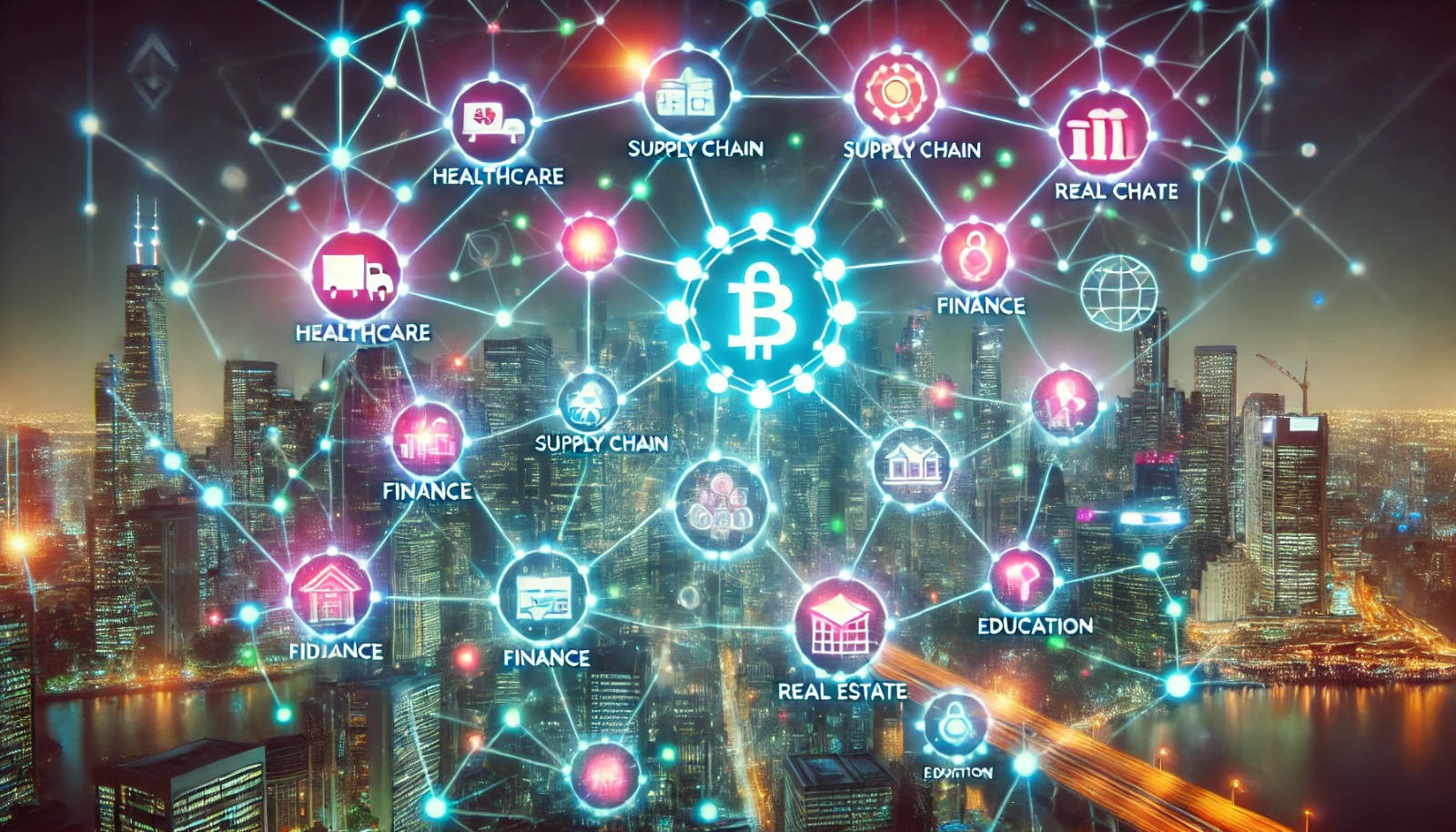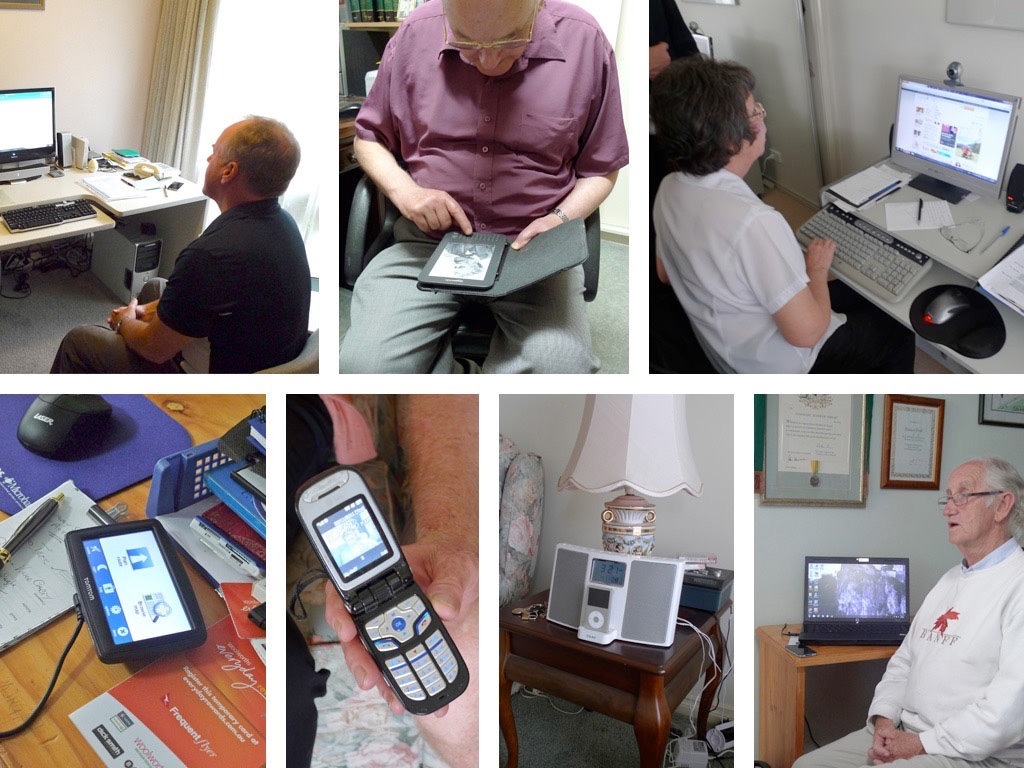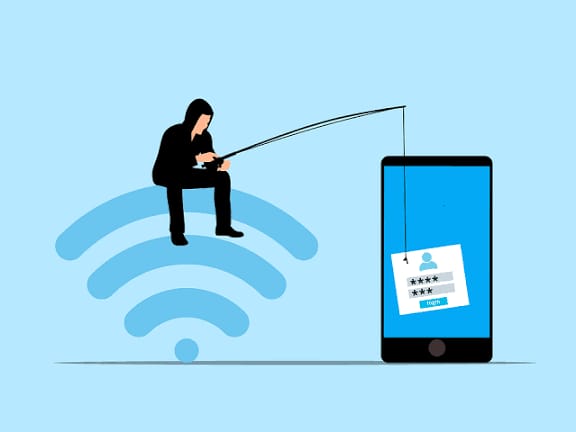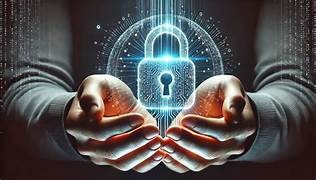
How Blockchain Is Reshaping Industries Beyond Crypto.
Blockchain is no longer just the technology behind cryptocurrencies. Its ability to provide transparency, security, and decentralization is transforming industries across the globe. From healthcare and finance to supply chains and voting systems, blockchain is reshaping how data is stored, shared, and trusted—paving the way for more efficient, tamper-proof, and inclusive digital systems across all sectors.
✨ Raghav Jain

Introduction: Beyond Bitcoin — The Rise of Blockchain as a Transformational Technology
Since its debut as the foundational technology behind Bitcoin in 2008, blockchain has largely been associated with cryptocurrency. However, its potential goes far beyond digital money. Blockchain is fundamentally a distributed ledger system that records transactions in a secure, transparent, and immutable manner. Unlike traditional centralized systems, blockchain operates on a decentralized network, minimizing the need for intermediaries and offering unprecedented levels of trust, efficiency, and transparency.
Today, blockchain is reshaping numerous industries, addressing age-old inefficiencies, reducing fraud, increasing accountability, and enabling innovative business models. From tracking food from farm to table, to safeguarding health records, to streamlining financial contracts, blockchain is stepping out of the crypto shadow and into real-world applications.
1. Supply Chain and Logistics: Transparency from Origin to Destination
The global supply chain is plagued by opacity, inefficiencies, and fraud. Blockchain introduces a secure, real-time tracking mechanism that improves visibility across the entire lifecycle of a product.
Use Cases:
- Food Safety: Companies like Walmart use blockchain to trace food origins. For example, tracing mangoes took 7 days before blockchain; now it takes 2.2 seconds.
- Counterfeit Prevention: Luxury brands use blockchain to certify the authenticity of their products.
- Shipment Tracking: Maersk and IBM’s TradeLens platform digitizes shipping documentation, reducing delays and costs.
Benefits:
- Reduces product recalls and fraud.
- Enhances trust between suppliers, manufacturers, and consumers.
- Provides real-time updates and audit trails.
2. Healthcare: Securing Patient Data and Streamlining Operations
Healthcare systems struggle with siloed data, inefficiencies, and lack of secure sharing mechanisms. Blockchain can unify health data while preserving privacy.
Use Cases:
- Electronic Health Records (EHR): Patients own and control access to their records, ensuring data portability and privacy.
- Clinical Trials: Blockchain ensures transparency and tamper-proof recording of research data, reducing fraud.
- Drug Traceability: The MediLedger project ensures pharmaceutical supply chain integrity.
Benefits:
- Improves patient outcomes through data accessibility.
- Reduces administrative costs.
- Prevents medical fraud and counterfeit drugs.
3. Finance: Beyond Cryptocurrencies to Smart Contracts and DeFi
While cryptocurrency was blockchain’s first application, the financial sector is now exploring decentralized finance (DeFi), smart contracts, and cross-border payments.
Use Cases:
- Smart Contracts: Self-executing contracts with terms directly written into code, reducing the need for legal oversight.
- Remittances: Blockchain enables faster, cheaper, and more transparent cross-border payments.
- Tokenization of Assets: Real estate, stocks, and art are being digitized into tradable blockchain tokens.
Benefits:
- Reduces transaction fees and time.
- Increases transparency in financial agreements.
- Offers financial inclusion through decentralized platforms.
4. Real Estate: Tokenization and Fraud Reduction
The real estate industry has long been burdened with paperwork, slow processes, and fraud risks. Blockchain is streamlining real estate transactions and ownership.
Use Cases:
- Land Registry: Countries like Sweden and Georgia use blockchain for tamper-proof property records.
- Fractional Ownership: Real estate tokens allow people to invest in property with small capital.
- Smart Lease Contracts: Automates rent payments and lease conditions using smart contracts.
Benefits:
- Increases access to real estate investments.
- Eliminates middlemen, reducing costs.
- Reduces fraud through verified ownership records.
5. Voting and Governance: Enhancing Democratic Processes
Voter fraud and low turnout are common issues in traditional elections. Blockchain offers secure, transparent, and accessible voting mechanisms.
Use Cases:
- Online Voting: Estonia has experimented with blockchain-based national ID and digital voting systems.
- Tamper-proof Voting Records: All votes are recorded immutably, and vote counting becomes auditable in real-time.
- DAO Governance: Decentralized Autonomous Organizations use blockchain to enable community-driven decision-making in crypto and non-crypto projects.
Benefits:
- Boosts voter confidence.
- Enhances participation via secure remote voting.
- Reduces election fraud and administrative costs.
6. Intellectual Property and Digital Content: Empowering Creators
The digital age has made it easy to copy and steal creative content. Blockchain ensures creators are properly credited and compensated.
Use Cases:
- Digital Rights Management: Blockchain platforms like Audius and Po.et track content usage and ownership.
- NFTs (Non-Fungible Tokens): Unique digital assets that allow creators to sell artwork, music, and other content with proof of authenticity.
- Royalties Automation: Smart contracts automatically distribute payments to stakeholders.
Benefits:
- Protects intellectual property rights.
- Creates new revenue streams for creators.
- Prevents piracy and unauthorized use.
7. Education and Certification: Verifiable Credentials
Diploma fraud and resume inflation are serious concerns for employers and institutions. Blockchain allows credentials to be verified instantly and securely.
Use Cases:
- Tamper-proof Diplomas: MIT issues diplomas on blockchain, allowing instant verification.
- Work History and Skills: Platforms like Learning Machine store professional credentials securely.
Benefits:
- Reduces credential fraud.
- Empowers learners with portable, verifiable records.
- Simplifies hiring and admissions processes.
8. Energy Sector: Decentralizing Power
Blockchain is decentralizing not just finance but also energy, enabling peer-to-peer power trading and better grid management.
Use Cases:
- Peer-to-Peer Energy Trading: Residents with solar panels can sell excess energy directly to neighbors.
- Grid Management: Transparent records of energy use improve forecasting and reduce outages.
Benefits:
- Promotes renewable energy.
- Reduces dependence on central utilities.
- Encourages energy conservation and decentralization.
9. Insurance: Faster Claims and Fraud Prevention
The insurance industry is often criticized for slow claims and opaque processes. Blockchain introduces automation and transparency.
Use Cases:
- Smart Contracts for Claims: Automated claim payouts based on predefined events (e.g., flight delays).
- Fraud Detection: Immutable records reduce double-claim fraud.
Benefits:
- Increases customer trust and satisfaction.
- Speeds up claim settlement.
- Reduces administrative costs.
10. Public Sector and Identity Management
Governments are using blockchain to improve services and secure citizen identities.
Use Cases:
- Digital IDs: Blockchain-based IDs offer secure, portable identification.
- Welfare Distribution: Transparent distribution of subsidies and grants.
Benefits:
- Increases trust in public systems.
- Reduces corruption and mismanagement.
- Enhances service efficiency.
Blockchain technology, once synonymous with cryptocurrencies like Bitcoin, is now making significant strides in industries far beyond digital currency. At its core, blockchain is a decentralized, immutable, and transparent digital ledger system that records transactions securely across a distributed network, eliminating the need for central intermediaries. Its unique features have made it a transformative force in areas ranging from supply chains and healthcare to finance, real estate, and even voting systems. In supply chain and logistics, blockchain offers unprecedented visibility and traceability; companies like Walmart have adopted it to track food origins, reducing the time to trace contaminated produce from seven days to mere seconds, while IBM and Maersk's TradeLens platform helps digitize and streamline global shipping. In healthcare, blockchain secures patient data, enables interoperable electronic health records (EHRs), and protects the integrity of clinical trials and pharmaceutical supply chains, enhancing patient outcomes and reducing fraud. The financial sector is experiencing a radical shift through blockchain-enabled decentralized finance (DeFi), smart contracts that execute automatically without intermediaries, and tokenization of physical assets, allowing real estate, art, and even equities to be divided into tradable digital shares. Real estate transactions are being simplified through tamper-proof land registries and smart lease contracts, reducing paperwork and fraud, and enabling fractional ownership. Governments are exploring blockchain for secure digital IDs, transparent distribution of welfare benefits, and even for conducting tamper-proof, auditable online elections, with Estonia leading the charge. In the creative industries, blockchain empowers artists and musicians through non-fungible tokens (NFTs) and smart contracts that automate royalty payments while protecting digital rights. Similarly, in education, academic institutions are leveraging blockchain to issue verifiable diplomas and credentials, drastically reducing resume fraud and easing recruitment. The energy sector is decentralizing with blockchain-enabled peer-to-peer energy trading platforms, where households with solar panels can sell excess energy directly to others on the grid, creating a more sustainable and democratic energy ecosystem. Insurance providers are also embracing blockchain to speed up claim settlements through smart contracts and to detect fraudulent claims with tamper-proof documentation. Meanwhile, blockchain's integration into the public sector is streamlining identity verification, land registry, and service delivery, reducing corruption and enhancing citizen trust in governance. Despite its enormous potential, blockchain is not without challenges—scalability, regulatory uncertainty, interoperability issues between different blockchain systems, and the energy-intensive nature of some consensus mechanisms like Proof-of-Work remain significant hurdles. However, ongoing innovations such as Proof-of-Stake, Layer 2 solutions, and cross-chain platforms are working to mitigate these concerns. As adoption continues to grow, blockchain is poised to become a foundational technology of the digital age, not only by transforming business models and improving operational efficiency but also by democratizing access to resources, data, and services across the globe. The convergence of blockchain with other technologies like AI, IoT, and 5G will further unlock new possibilities—from automated supply chains to smart cities—making blockchain not just a passing trend but a core infrastructure for future innovation. Its ability to build trust in trustless environments, to eliminate inefficiencies born of middlemen, and to empower individuals through decentralization makes it one of the most disruptive technologies of our time, reshaping industries and society alike.
Blockchain technology, which first gained prominence as the backbone of Bitcoin, is now revolutionizing numerous industries well beyond cryptocurrency by offering unprecedented levels of transparency, security, and decentralization. At its core, blockchain is a distributed digital ledger that records transactions across a peer-to-peer network, ensuring that each transaction is secure, immutable, and verifiable without a central authority. This transformative potential has pushed blockchain into the mainstream of various sectors such as supply chain management, healthcare, finance, real estate, governance, education, energy, and entertainment. In supply chain and logistics, for example, blockchain provides end-to-end transparency, helping companies track the movement of goods from origin to delivery with precision and real-time updates. Walmart uses blockchain to trace food products like mangoes from farm to shelf in just 2.2 seconds, compared to seven days using traditional systems, while IBM and Maersk's TradeLens digitizes maritime shipping data to reduce paperwork and delays. In healthcare, blockchain enhances the privacy and portability of patient records, allowing for secure electronic health records (EHRs) that patients control and that can be shared with authorized providers instantly, improving diagnoses and continuity of care. It also secures drug supply chains against counterfeit medicines and ensures transparency in clinical trials by immutably recording protocols, results, and data sharing. Financial services, while already disrupted by cryptocurrencies, are being reimagined through decentralized finance (DeFi) platforms, where blockchain enables peer-to-peer lending, yield farming, and trading without intermediaries. Smart contracts—self-executing digital agreements written in code—automate financial agreements, insurance payouts, and even complex derivatives, making transactions faster, cheaper, and tamper-proof. Furthermore, the tokenization of real-world assets such as real estate, stocks, or artworks allows fractional ownership and easier trading, democratizing investment opportunities for retail participants. In real estate, blockchain is eliminating fraud and inefficiencies by recording land titles on immutable ledgers; countries like Sweden and Georgia have implemented blockchain-based land registries, while smart contracts are simplifying lease agreements and automating rent payments. Government and voting systems are exploring blockchain for digital identity verification and secure, auditable elections—Estonia being a pioneer in blockchain-based e-governance, offering its citizens services like e-residency and online voting with tamper-resistant records. In the education sector, academic institutions such as MIT have started issuing blockchain-based digital diplomas, which are easily verifiable and eliminate the risk of credential fraud, while employment platforms integrate blockchain to validate professional skills and experience with greater reliability. The energy sector is also experiencing decentralization as blockchain facilitates peer-to-peer energy trading; individuals with solar panels can now sell excess power directly to neighbors through smart contracts, bypassing traditional utilities and contributing to more sustainable grid models. In insurance, blockchain accelerates claims processing and reduces fraud by recording every event transparently; for instance, travel insurance can now be automated—if a flight is delayed, smart contracts can trigger automatic compensation without manual intervention. Even industries reliant on intellectual property—like music, art, and publishing—are benefiting from blockchain’s ability to protect digital rights and automate royalty payments through smart contracts and NFTs (non-fungible tokens), ensuring creators are properly credited and compensated. Blockchain also strengthens cybersecurity by providing decentralized control over data, making it harder for hackers to compromise systems, especially in sensitive sectors like defense and finance. Despite all these advancements, blockchain adoption faces several hurdles, including scalability issues, energy consumption in Proof-of-Work systems, lack of standardized regulations, and interoperability challenges between different blockchain networks. Yet, promising solutions are emerging: Proof-of-Stake and other consensus mechanisms drastically reduce energy usage, Layer 2 protocols improve scalability, and cross-chain platforms are enabling interoperability. As innovation accelerates, blockchain’s integration with other advanced technologies—like artificial intelligence (AI), Internet of Things (IoT), and 5G—further extends its capabilities. For example, combining IoT devices with blockchain enables real-time sensor data to be immutably recorded and used for predictive maintenance in manufacturing or to verify cold chain conditions in pharmaceutical logistics. Similarly, AI can analyze blockchain data for fraud detection, compliance, and risk management in real time. This convergence of technologies will likely give rise to smarter cities, autonomous supply chains, decentralized autonomous organizations (DAOs), and novel governance models, where decision-making is distributed, transparent, and code-driven. As these applications mature, blockchain is shifting from a niche innovation to a foundational layer of the digital economy, enabling more secure, efficient, and fair systems across virtually every industry. The long-term impact of blockchain could be as profound as the rise of the internet, especially as businesses, governments, and individuals recognize its ability to redefine trust, ownership, and value exchange in the digital age. Though still in its evolution phase, blockchain has already demonstrated that its value proposition is not confined to cryptocurrency alone—it is a technological paradigm with the power to reshape industries at their core, from how we vote and heal to how we buy, sell, create, and govern in the 21st century.
Conclusion
Blockchain is rapidly evolving from a cryptocurrency enabler to a versatile technology transforming industries worldwide. Its core features—decentralization, transparency, immutability, and automation—offer powerful solutions to systemic problems across sectors. From healthcare to real estate, from education to voting, blockchain is laying the groundwork for a more efficient, transparent, and inclusive future.
Though challenges such as scalability, regulation, and energy use remain, the momentum is undeniable. As adoption grows and technology matures, blockchain’s true potential as a disruptive force is just beginning to unfold. It is not just the future of finance, but potentially the foundation of many industries in the digital age.
Q&A Section
Q1 :- What is blockchain and how does it work?
Ans:- Blockchain is a decentralized digital ledger that records transactions across multiple computers. Each block contains a set of transactions and is linked to the previous block, forming a chain. This makes the data tamper-proof, transparent, and immutable.
Q2 :- How is blockchain used outside of cryptocurrency?
Ans:- Blockchain is used in supply chain tracking, healthcare record security, real estate title management, voting systems, digital identity, intellectual property protection, and more, providing transparency and efficiency.
Q3 :- What are smart contracts?
Ans:- Smart contracts are self-executing contracts with the terms of the agreement directly written into code. They automatically perform actions when conditions are met, eliminating the need for intermediaries.
Q4 :- How does blockchain improve supply chains?
Ans:- It provides real-time tracking, transparency, and verifiable records of every step in the supply chain, reducing fraud, errors, and inefficiencies.
Q5 :- What industries are being transformed by blockchain?
Ans:- Finance, healthcare, real estate, supply chain, education, energy, insurance, public services, and creative industries are all being reshaped by blockchain technology.
Similar Articles
Find more relatable content in similar Articles

Digital inclusion: designing d..
Designing technology for elder.. Read More

Cloud PCs: Will Your Next Comp..
Cloud PCs are transforming the.. Read More

From Phishing to Data Theft: ..
Cybercrime in India is evolvi.. Read More

Digital Privacy in 2025: How S..
In 2025, digital privacy faces.. Read More
Explore Other Categories
Explore many different categories of articles ranging from Gadgets to Security
Smart Devices, Gear & Innovations
Discover in-depth reviews, hands-on experiences, and expert insights on the newest gadgets—from smartphones to smartwatches, headphones, wearables, and everything in between. Stay ahead with the latest in tech gear
Apps That Power Your World
Explore essential mobile and desktop applications across all platforms. From productivity boosters to creative tools, we cover updates, recommendations, and how-tos to make your digital life easier and more efficient.
Tomorrow's Technology, Today's Insights
Dive into the world of emerging technologies, AI breakthroughs, space tech, robotics, and innovations shaping the future. Stay informed on what's next in the evolution of science and technology.
Protecting You in a Digital Age
Learn how to secure your data, protect your privacy, and understand the latest in online threats. We break down complex cybersecurity topics into practical advice for everyday users and professionals alike.
© 2025 Copyrights by rTechnology. All Rights Reserved.